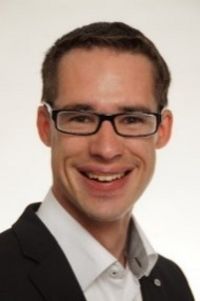Dr. Pascal Böwer
(PostDoc, lecturer)

W3 3-374
+49441 798 3561
E-Mail:
Research field: process simulation, process development, industrial chemistry, biofuels, sustainable industry, preparation of startup foundation
BionicFuel Spin-Off
To contribute to the solution of problems in modern societies and to transfer newest research results on an industrial scale we strive for the BionicFuel spin-off. The basis is a newly revised bioproduct production process (biofuel, monomers of the plastics industry, platform chemicals, etc.). We support the fight against climate change by an industrially scalable negative CO2 emission on the process side. We address inflation, security of supply, and other current issues through the outstanding cost-efficient and sustainable production method.
Teaching:
- „Chemical Process Development“ (mastermodule)
- „Grundvorlesung Technische Chemie“ (bachelormodule)
- „Forschungspraktikum Technische Chemie“ (mastermodule)
Research:
- ABE fermentation
- Programming kinetics
- Process development
- Dividing wall column
- Fuel cell simulation
- Water desalination (gas hydrates)
- Biogas plants
- Aspen Plus
- CHEMCAD
- Biofuel production
PhD Thesis:
Title: Highly detailed simulation of the ABE fermentation kinetics within commercial process simulators.
Chemicals and fuels produced from reneweable resources are of great interest. Within the field of biofuels butanol is much more versatile than ethanol. A process with high potential for an industrial production of butanol is the ABE-fermentation process. The economics of this process are highly influenced by the process type (batch, fed-batch or continuous) and the purification methode.
In my thesis the simulation of an ABE-fermenter was investigated using the process simulators Aspen Plus and CHEMCAD.
In contrast to the Aspen Plus simulation, the LLE for an extraction was calculated within the user defined kinetics subroutine in CHEMCAD. Two kinetic models were implemented and validated. To avoid errors of the mass balance, three correction algorithms were developed and investigated.
Using Aspen Plus with an external convergence algorithm, did not lead to convergence of the fermenter model due to the single precision problem.
The kinetic models were checked using a fourth order Runge Kutta algorithm with boundary constraints and the calculations are validated against experimental data. Even in case of small integration step width violations of the constraints are observed. Finally, combining the Runge Kutta algorithm with a downhill simplex Nelder Mead algorithm, both kinetic models were fitted.
Chemical Process Development (FLIF+ project (BMBF)):
Process development and optimisation play an essential role in the chemical, pharmaceutical and refining industries. Several research objectives are chased by science: the development of processes for completely new products, the use of ecologically better-suited raw materials (use of sustainable resource) or the optimisation of already established processes. In the course of the research course "Chemical Process Development" all the necessary basic knowledge are given to the students. Then they prepare an extensive design project, which will deal with a current research question. In addition to imparting pure knowledge the improvement of the soft skills, for example an extensive presentation training, is also important to us.



